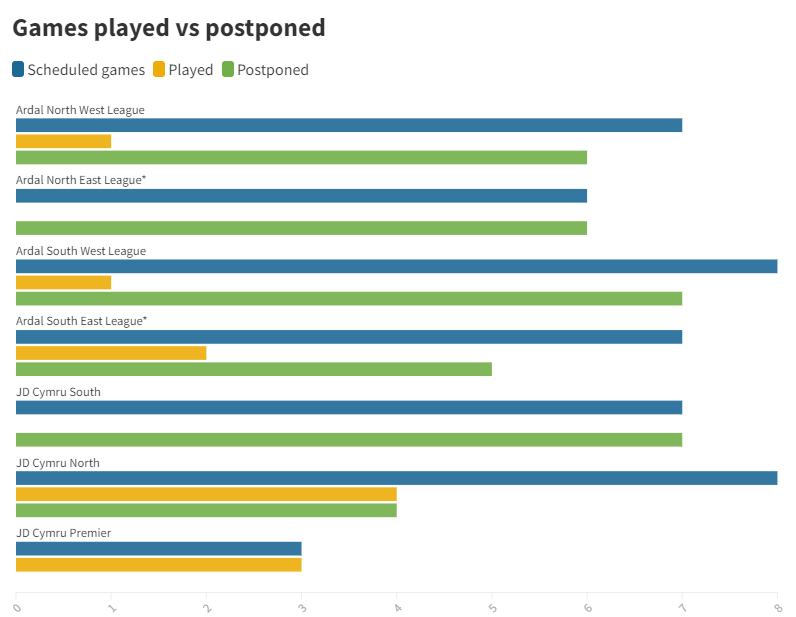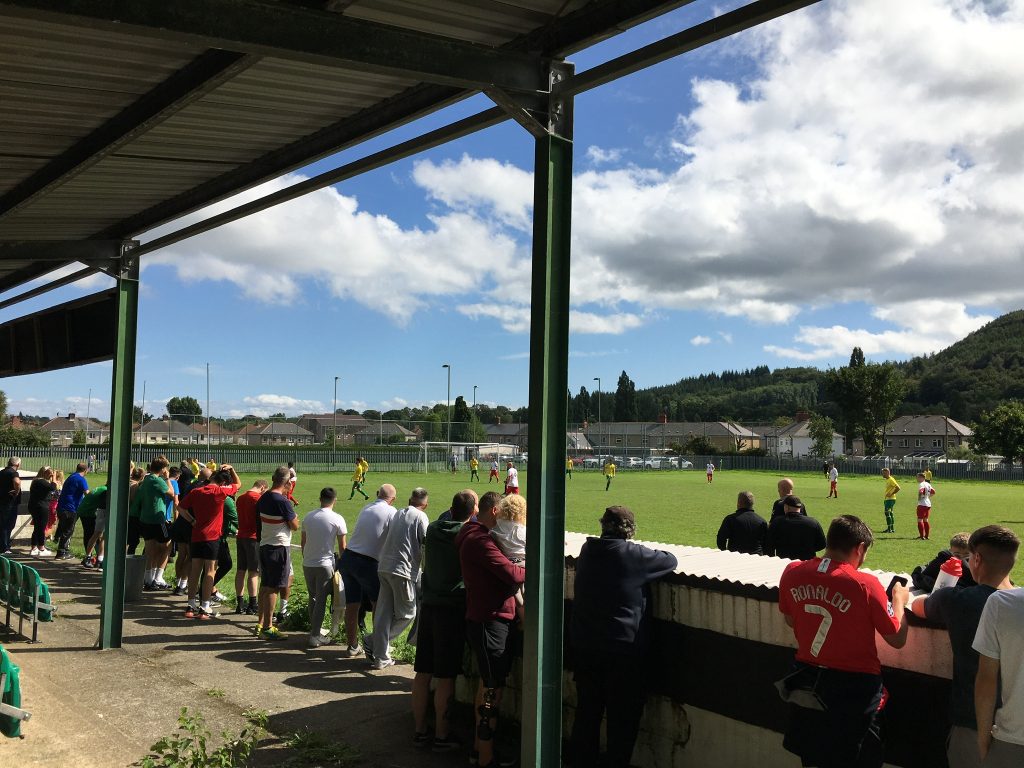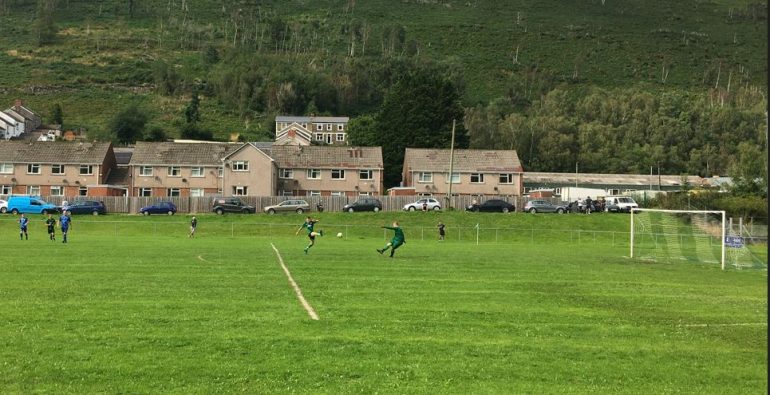As the list of games delayed by the cold mounts up, so does the debate around switching the domestic football pyramid over to the summer
THE recent winter weather has wreaked havoc on football pitches across Wales, causing many games to be called off.
The disruption has prompted talk amongst fans over whether their clubs should be playing in the summer instead.
From January 20-21 there were 46 fixtures scheduled across the top three tiers of the Welsh football pyramid but only 11 of these actually took place, with 35 being postponed due to the cold weather.
For many who favour a summer switch, the warmer conditions would mean far less game postponements resulting in a less cramped fixture schedule. Others are hoping that the sunny weather might attract higher crowds.

“The summer in Aber can be fantastic and throwing regular, competitive football into the mix could be an absolute winner,” said Gwil Hughes from the Aberystwyth Sole Crew, a supporter’s group for Aberystwyth Town FC who play in the top tier of the Welsh pyramid.
“It’s far better to get supporters into the habit of going to games regularly and ideally converted into season ticket holders, and for that to happen you need games to happen when it’s nice enough to be outside.”
Barry Town United fan Leon agrees: “I believe that a summer league would change the whole dynamic of supporting football in Wales.
“Those who support the big Welsh teams in the English system will be looking for their ‘football fix’ when the English season ends. Pre-match pints in hot beer gardens will provide them with a new type of footballing experience; akin to summer international tournaments.
“Gates would certainly improve. It’s no secret that when Cardiff City are away, our gates receipts are increased, so it would see more people coming through the turnstiles at Jenner Park.”

Last season the average attendance across all 12 Cymru Premier clubs was 352. With the highest crowds turning up at the Oval to watch Caernarfon Town, who averaged 587 spectators for every home game of the 2021/22 season.
When you consider the fact that clubs in the top flight such as Cardiff Met, Pontypridd United, and Penybont Town are all forced to compete for fans with well-established clubs who play in the English system, such as Cardiff and Swansea, then the idea of avoiding fixture clashes with these clubs does make sense.
There’s also the matter of European football to consider.
Since the league’s creation in 1992, no club has managed to enter the group stages of any of the three major European competitions, with many falling flat in the qualifying rounds that often take place before the start of the domestic season. This leaves many fans to think that an early start to the calendar could lead to improved performances on the continent.
“Considering when we play opposition who are already competing in their season for euro qualifiers, I think results would improve instead of UCL/UEL games being the first games Cymru Premier sides play at the start of the season,” said Evan Powell.
There is precedent for a country changing their national league’s schedule, such as the League of Ireland who switched over to playing in the summer back in 2003.
The LOI does have a far higher average attendance rate in comparison to the Cymru Premier. An average crowd of 2,821 turned out to watch games during the 2022 season, the highest coming from Dublin-based side Shamrock Rovers who averaged 5,470.
LOI clubs have also faired better in European competitions than their Welsh counterparts.
Last season four clubs from Ireland – Shamrock Rovers, Sligo Rovers, St Pats, and Derry City – participated in European qualifiers, with Shamrock Rovers qualifying for the Europa League group stages. Meanwhile only three teams from Wales participated in the qualifiers, TNS, Bala Town, and Newtown, with none making it through to the group stages.
To make matters worse, Bala were knocked out by Sligo Rovers in the first round of qualifying for the Europa Conference League.
In the UEFA coefficient rankings, which are used to help rank clubs in international competitions, the LOI sits in 36th place whilst the Cymru Premier sits near the bottom in 50th.
However for some the swich to a summer league could prove to be more of a hinderance to the traditional aspects of the current schedule.
“Personally I wouldn’t be hugely against it, but I’m a bit of a traditionalist,” said Tomi Caws, a Wrexham fan who also follows CPD Llansannan and Denbigh Town.
“I enjoy the Christmas period in Welsh football, especially going to games between Xmas and NY. Also I like the fact the end of the season when crunch games are played in good weather.”
A key part of the current schedule is the traditional boxing day fixture which has long been a staple of the football calendar in the UK, with the first game taking place all the way back in 1860.
“Humans are creatures of habit and often don’t like change,” said Leon.
“It would mean a drastic change in the traditional football calendar, which might affect fans love for the sport.
“The festive boxing day fixture would certainly be a big loss to many including myself, but I would happily exchange that fixture for a few months of football in the sunshine.”
A move towards playing matches in the summer also runs the risk of clashing with other sports that often take place during these months, such as cricket which is often played on fields that would usually double as a football pitch in the winter.
“Some footballers play cricket in the summer months so availability would be a factor in June, July and August,” said Caws.
“Definitely at lower levels, there are a lot of examples of multi-use pitches in Wales so that could be a factor.”
The link between the Welsh and Irish FAs? The man in charge of the FAI when it took the decision to move league games to the summer was one Noel Mooney, currently Chief Executive of the FAW.


